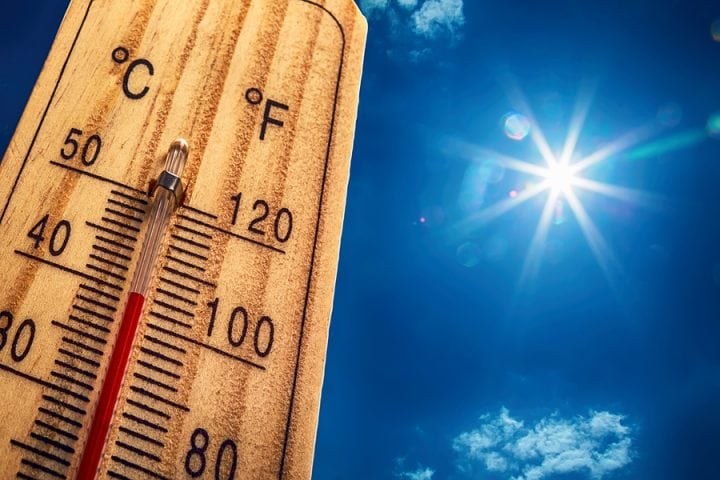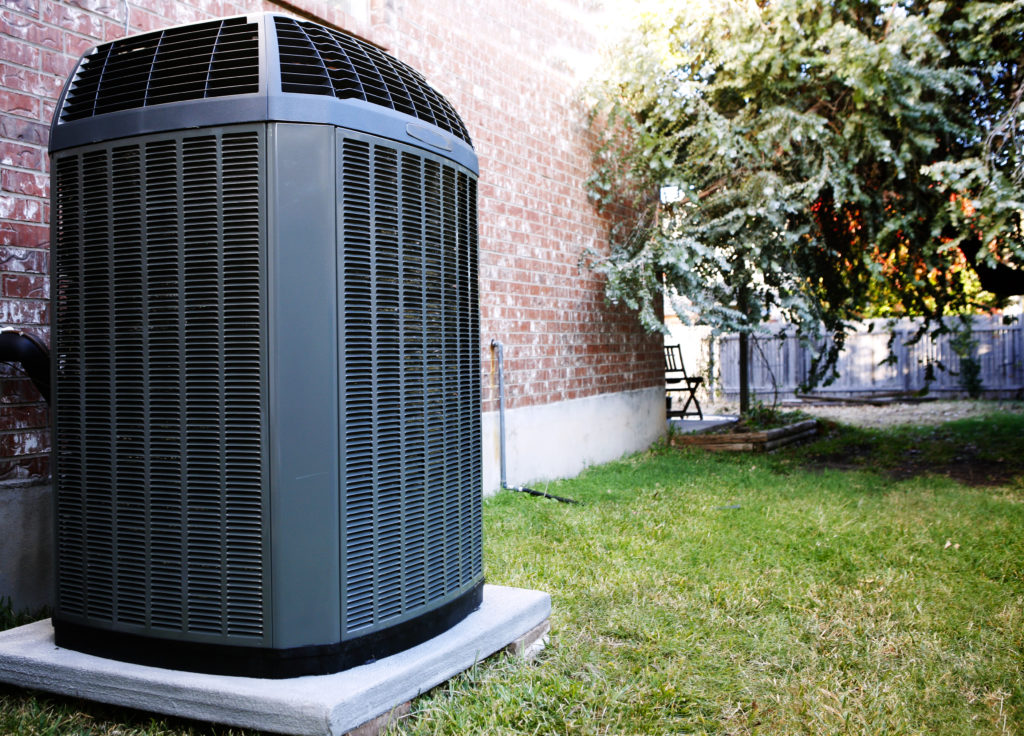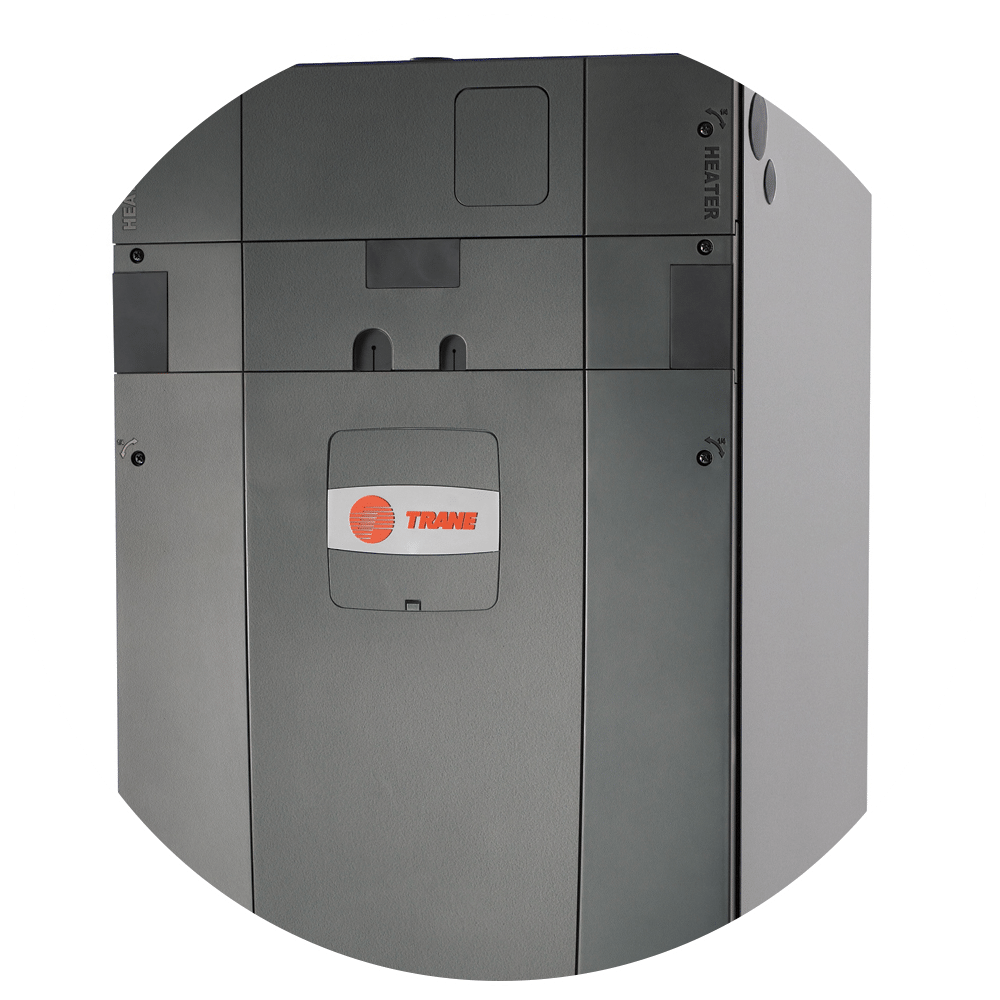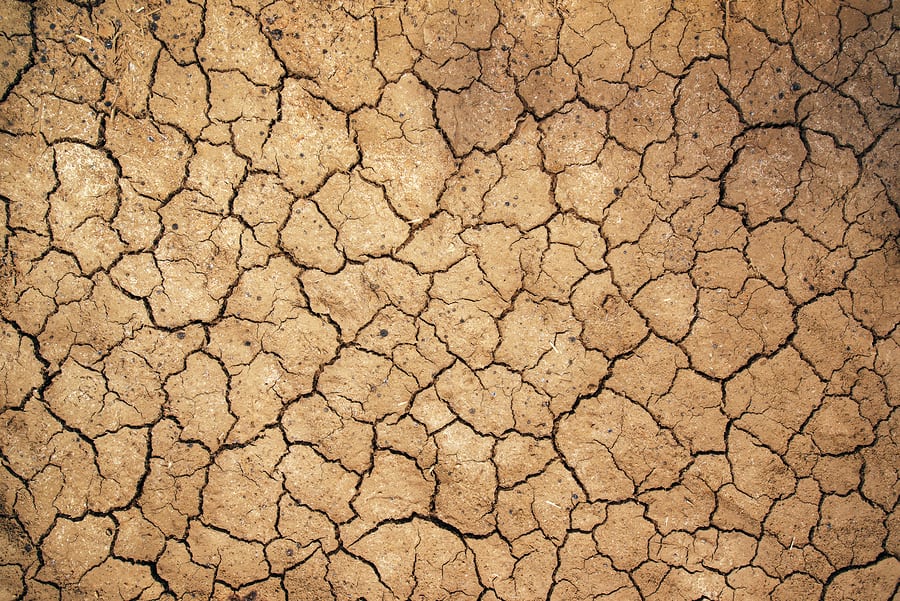The Dangers of High Temperatures in California

High temperatures aren’t just a risk to your health, but your home’s HVAC system. The summer brings with it the sweltering heat and humidity, and sometimes those temperatures can escalate to dangerous degrees. Most homeowners rely heavily on their air conditioners to combat the heat, but over time those intense temperatures can wear down your ac unit. Luckily there are a few tricks you pull from your sleeve to protect yourself and your air conditioner.
How You Can Maintain Your Air Conditioner in High Temperatures
There’s only so much you can do to fight the heat, but that doesn’t mean you or your air conditioner have to take it lying down. A cool and comfortable home means staying on top of what your air conditioner needs, as well as monitoring habits, and avoiding activities that emit a lot of heat. The summers in California can be intense, but that doesn’t mean you have to fret. Here’s what you can do to stay safe and avoid the miserable heat.
Invest in a digital thermostat.
It’s a common misnomer that if you keep your air conditioner running at the lowest of temperatures, it’s the best way to stave off the heat. In reality, having your air conditioner constantly circulating a 60-degree temperature throughout your house will only overwork your ac unit. Keeping the room temperature at 77-78 degrees is still comfortable despite the sweltering heat outside, and it doesn’t overstress your air conditioner. Using a digital thermostat also helps to monitor your home’s room temperature throughout the day, and to adjust it accordingly.
Replace your air filter.
Your air conditioner is an air filter that collects dust, allergens, and debris, that would otherwise be circulated throughout your house. Over time, those filters can collect enough dirt to clog the ventilation in your air conditioner. An ac unit that’s not properly ventilated will not only circulate dirty air, but it can eventually break down. To keep your air conditioner running and the air inside your house clean, it’s important to replace your air filter every 30-60 days.
Schedule yearly tune-ups.
The more maintained your air conditioner is, the better it can do its job. That’s why it’s important to schedule an annual tune-up with your HVAC specialist. An HVAC professional is trained to thoroughly inspect and fix any problems that prevent your ac unit from working effectively. The best way to take care of your air conditioner is to catch issues early, and that’s exactly what a yearly tune-up can do for you.
Keep the sun out of your house.
It sounds like an obvious idea to try and avoid the sun, but the summer heat provides several different heat traps inside your home. Closing curtains that face the sun is an easy way to block out some of the heat. Treating your windows with thermal lined curtains and window tinting helps to refract those UV rays. Planting trees and shrubs around your house can provide natural shading and a buffer between the sun and your house. Even painting your walls a brighter color can help to reflect some of that oppressive solar energy.
Monitor your habits.
Another important thing to remember is your daily habits. Several routine chores can emit a lot of heat such as using the dishwasher, oven, and dryer. If you can, avoid cooking inside and take shorter showers, as both activities contribute a lot of heat and humidity inside your home. Unplug any unused appliances, and try to keep your fridge and freezer full of food. Any electrical appliance in use will naturally generate some heat, so it’s best to monitor how and when you use these appliances.
Ventilate your home.
Ventilation is important when you’re trying to combat the heat. Closing off closets and empty rooms and using fans helps to better circulate that cool air throughout your house. Keeping your vents and air ducts clear from obstructing furniture is also very helpful and prevents your air conditioner from overworking itself.
Insulate your home.
Whatever cool air you generate, you’ll want to keep that inside your house. A house that isn’t properly insulated, however, is prone to air leaks which make it more difficult to stay cool and comfortable. Sealing leaky doors, windows, and air ducts means more cool air is circulated where it needs to go. Insulating your attics and installing attic vents will also help to keep the cold in and the heat out.
Your Health Should Never be at Stake
High temperatures put everyone at risk, causing discomfort and dehydration, and even much more fatal symptoms such as heat stroke. As a homeowner, you shouldn’t have to suffer inside the comfort of your own home, but that does mean taking proper care of your air conditioner. A scheduled tune-up with an HVAC technician is the perfect way to prepare your home for the incoming heat. Don’t wait until it’s too late, set up an appointment today.
Call NexGen Today
Our expertise and commitment to customer satisfaction make us the leading HVAC company in Southern California. To learn more about our equipment, services, and protection plan,
book an appointment online or call
888-277-0415.
10 HVAC Facts

HVAC is not something the average person understands, whether you own your own home or currently rent an apartment unit, monthly utility bills are often a big question. You never really know what it might cost when you open that envelope. Wouldn't it be nice to no longer worry about the number looking back at you? By cutting down energy consumption, you can save hundreds, if not thousands of dollars every single year.
You've probably heard many of the common energy saving recommendations, such as switching out old light bulbs for new energy saving options. However, by looking further into these 10 HVAC facts, you'll not only learn a bit more about your heating and cooling system, but also a few ways to trim down monthly energy consumption.
1. Where Does Most Energy Usage Come From?
Did you know the vast majority of your energy consumption comes from three different appliances in your home? That's right. 75% of your home's total energy usage stems from your water heater, air conditioner, and furnace. This means if you can improve the energy efficiency of these three appliances you'll save a substantial amount throughout the year. But what options do you have? First, how old is your water heater? An old water heater bleeds energy. If it is time for an upgrade, consider a tankless water heater.
2. Almost Half of Homeowners Don't Know What Their Monthly Electric Bill Is
Yes, 47% of homeowners don't know what they're spending on electricity. Would you do that for your mortgage, rent, car insurance or cell phone? Probably not. You need to know what you are paying and monitor changes in monthly bills. By doing this, you'll have a better understanding of what you're paying and how it changes throughout the year. This way, you can make necessary changes to improve energy efficiency.
3. Sleep Better With the Right Temperature
Struggling to sleep? Maybe it's your home's temperature. Optimal sleeping temperatures are between 65 and 72. Do different family members need varying room temperatures to sleep? Consider switching to a ductless multi-room system. This allows you to control each room's temperature directly and can save you money along the way (as you're no longer cooling or heating the guest bedroom or other areas of the house you rarely use).
4. 10 Degrees is 14%
According to the American Council for an Energy-Efficient Economy, if you turn down your thermostat 10 degrees while out of the house and at night, you'll save 14% on your energy bill. With a programmable thermostat, you can easily make this change. A smart thermostat gives you, even more, control, allowing you to change the home temperature from your smartphone.
5. Save With Cooler Water
Everyone loves a hot shower. But do you need it that hot? If you turn down the temp on your water heater by 10 degrees, you can save up to 5% annually on energy costs. If your water heater is on the older side, replacing it can help boost energy efficiency even further.
6. Monthly HVAC Savings
By transforming your house into an energy-efficient home, you can save at least $75 a month. Over the span of 30 years, this equals a savings of $27,000.
7. Replace That Old Furnace
A furnace's life expectancy is 20 years. However, as it ages, it becomes less efficient. This is why you need to have it annually inspected in order to maintain performance and reduce energy costs. Every year, newer furnaces are sold with improved energy efficiency ratings.
8. The AFUE Rating
Did you know your heating system's AFUE rating can tell you the percentage of fuel consumed for heat and what you're losing? Stay on top of this to see if there is a change. It means you're losing fuel in the transfer. Insulation options can help cut fuel loss and improve your heating system.
9. Beware the Power Vampire
There are many appliances that still draw power, even when turned off. These appliances are referred to as "Power Vampires." Consider either unplugging unused appliances or connecting everything to a power-saving power strip. Throughout the United States, all the energy lost to power vampires annually is enough to power 7,387 homes a year.
10. The Love of Central Air
According to the US Census Bureau of the American Housing Survey, 65% of households have central AC. Only 22% use a room or window unit. The rest either don't have AC or use an alternative cooling method. AC units can kill your energy bill if you're not careful. In fact, the amount of energy the United States uses annually to run AC units is the same amount of energy, in total, used by the entire African continent.
Call NexGen Today
Our expertise and commitment to customer satisfaction make us the leading HVAC company in Southern California. To learn more about our equipment, services, and protection plan,
book an appointment online or call
888-277-0415.
Why Go Tankless? The Benefits of Upgrading from Your Tank-Type Water Heater

Hot water on demand is one of the best perks a home can provide, right along with air conditioning and the garbage disposal. However, like any other major home appliance, water heaters eventually break down, especially storage tank water heaters. If your storage tank water heater has seen better days, it could be time to consider upgrading to a tankless water heater.
The Perks of a Tankless Water Heater
Whether or not you need to replace your water heater, the benefits of installing a tankless water heater are worth the cost and effort. Storage tank water heaters need to run constantly to keep the water inside the tank hot. Generally storing 30-50 gallons of hot water, there’s a limited hot water supply. What’s also important to note is that the operating costs of a tank storage water heater are expensive because it’s always running to keep the water heated. In comparison to the 20-30 lifespan of a tankless water heater, the average lifespan of a storage tank water heater is 10-15 years. The benefits of a tankless water heater include much more than efficiency, and here’s why.
No flood risk
A tankless water heater doesn’t have a tank that can crack or rupture. When a storage tank water heater has reached the end of its warranty, it might mean 30-50 gallons of water flooding your basement. This occurs when there’s enough of a buildup of mineral deposits inside the water heater’s tank, creating pressure until it bursts and resulting in some devastating water damage.
It doesn’t take up much space
One great perk, especially if you have plans to renovate the basement, is that a tankless water heater takes very little space. Without the 30-50 gallon tank, you can mount a tankless water heater just about anywhere.
They’re energy efficient.
Since there is no tank, which means there is no standby heat loss, a tankless water heater literally provides hot water on demand. A storage tank water heater needs to constantly heat the water inside the tank, regardless if you’re using the hot water or not. A tankless water heater can provide up to 5 gallons of hot water a minute, but no hot water is wasted.
You save money
Because they’re energy efficient, tankless water heaters use 30-50 % less energy than storage tank water heaters, resulting in homeowners saving up to $100 and more a year. Most tankless water heaters also come with a tax rebate.
It’s better for the environment
For the eco-conscious homeowner, tankless water heaters not only benefit the environment by being energy efficient. In fact, most tankless water heaters are built from recyclable materials, which mean one less major appliance ending up in the landfill.
What to Consider When Installing a Tankless Water Heater
If you’re ready to invest in a tankless water heater, it’s important to first consider the different types of tankless water heaters and what works best for you. Size, fuel type, and efficiency are a few important factors to think about when selecting a tankless water heater. Before contacting a plumber, consider the following.
Fuel type
There are three fuel types for a tankless water heater: gas, propane, and electric. Picking a fuel type usually depends on what type of fuel is available in your area and switching fuel types can be costly. Gas is much faster and efficient at heating water, but requires a high heat output. Electric tends to be cheaper to install, but demands a great deal of electricity to operate.
Gallons per minute (GPM)
Since a tankless water heater doesn’t use a tank, this means calculating the size in a different way. A tankless water heater delivers hot water on demand, so you need to determine how much gallons per minute (GPM) each appliance in your home needs and what the peak water consumption rate is in your house, before determining a size. If, for example, you typically have a shower, the dishwasher, and washing machine all running at the same time, you would have a GPM of 3.5 - 7.5.
Groundwater temperature
The temperature of incoming groundwater impacts the speed and flow of your tankless water heater. For homeowners who live in a cooler climate, for example, they will need a tankless water heater with a higher GPM to meet their hot water demands. Homeowners who live in a hot climate where it seldom hits freezing temperatures, should consider an outdoor tankless water heater.
Different Maintenance For Different Types
It’s also important to consider what’s involved in maintaining your brand new tankless water heater before installing it. How much maintenance will depend on the fuel type of your water heater as well as how much your water is laden with minerals. Homeowners who run on hard water should flush their water heater every 6 months. Electric tankless water heaters require little maintenance other than some routine cleaning. Gas tankless water heaters however, should be inspected annually to verify for safe fuel combustion and any other general maintenance.
Stop Paying High Water Utility Bills
Don’t let your wallet and lifestyle suffer a day longer, not when a tankless water heater can cut down your utility bills by 20%.
Call NexGen Today
Our expertise and commitment to customer satisfaction make us the leading HVAC company in Southern California. To learn more about our equipment, services, and protection plan,
book an appointment online or call
888-277-0415.
How To Best Maintain Your Air Conditioner In Extreme Desert Heat

Keeping the heat out of your home, especially when living in a dry, desert climate like California, can add a tremendous amount of stress to your air conditioner. It’s not the issue of whether you spare a few hours without air conditioning, but rather how does one keep up with the upkeep of an overworked air conditioner. Extreme heat means your air conditioner is running constantly to keep your house cooler, and the older the air conditioner, the faster it will wear down.
Warning Signs of a Damaged Air Conditioner
A good place to start is to make sure your air conditioner is working correctly. An air conditioning unit that’s constantly running in extreme heat generally means problems are more frequent to happen. Sometimes it’s difficult to find the culprit, however, and because of that, damaged air conditioners are left untreated until they break down. To avoid costly repairs, here are a few warning signs to look out for.
Dirty filters
Over time, the filters inside the air conditioner collect dust, dirt, and allergens. Filters should be cleaned at least once a month, but because of the extreme heat, these filters collect dust and debris faster than normal. When the filter becomes clogged, the air conditioner has to work even harder to keep your house cool. Cleaning filters is one of the easiest and most effective ways to maintain your air conditioner.
Unwanted moisture
If you find your air conditioner is leaking, there could be a serious problem. The air conditioner could be leaking refrigerant, which is a health hazard that requires a professional technician to repair your unit immediately. Water pooling adjacent to your air conditioner; however, could mean the drain tube that removes condensation is either blocked or broken. A damaged drain tube is not as serious of a problem but should be taken care of within a reasonable amount of time to avoid mold.
Strange sounds and odors
Squealing, grating, or grinding sounds imply something inside the unit needs to be replaced. A squealing sound could mean the belt slipped out of place or a metal component needs more lubrication. If you hear grinding, the unit’s motor bearings might be broken. If something smells foul, the wire insulation may have burned out. If something smells musty, there could be mold inside the air conditioner or ductwork.
What You Can Do
For homeowners who live in extreme heat climates, it’s especially important to keep up with maintenance. Routinely cleaning and repairing your air conditioner not only extends the unit’s lifetime, it helps keep it running efficiently. Routine maintenance for your air conditioner isn’t the only method to keep your house cool, however, as habits and other appliances can impact the temperature inside your home as well. The good news is how much you can do to keep your house cool under extreme heat conditions.
Don’t confuse your thermostat
Make sure to keep any appliances that emit heat away enough from your thermostat. A thermostat that senses heat generated from a lamp or TV nearby can result in your air conditioner running longer than necessary. An accurate thermostat will help keep everything running efficiently.
Keep out plants and other debris
To maintain adequate airflow, it’s important to keep all plants and debris at least two to four feet away from the air conditioning unit. Building a fence around the air conditioner can help to keep shrubs, tree branches, and other bigger plants away.
Keep your air conditioner cool
Whether it’s inside or outside the house, it’s important to keep your air conditioner in a cool, shaded space, away from direct sunlight. Installing it on the shady side of your home, or using shrubs or a fence to provide shade, can help your air conditioner run more efficiently.
Keep as much of the sun out of your house
Open windows are an invitation for extra heat to come in, that’s why it’s beneficial to always close curtains that face the sun. Installing thermal liners in your curtains also helps to reflect some of that residual heat out the window. Windows with a residential tint film will help to cut off sunlight significantly.
Monitor your habits and appliances
A lot of activities, such as cooking, showers, and laundry, can generate heat. To keep your house cool, try cooking outside as much as possible. Avoid using the oven, and when using the dishwasher, let your dishes air dry versus using the dry cycle. Shorter showers with proper ventilation will also help keep the humidity down. If possible, hang dry your laundry outside or avoid using the dryer during peak daytime temperatures.
Maintain a good airflow
Good air circulation helps your air conditioner to run smoothly as well as keeping that cool air running through your home. Closing doors to unused rooms, closing closets, moving furniture, and using fans all help to keep a good airflow inside your home.
Don’t Wait Until the Unit Breaks
Nothing is more devastating or costly to a homeowner than having to live inside their home without a functioning air conditioner. Routine maintenance and energy-efficient habits are important to maintain your air conditioner, but it’s also crucial to have an HVAC contractor perform yearly maintenance. If there is ever something wrong with your air conditioner, a professional HVAC contractor can diagnose the problem. By providing you with the most effective solution, they can help keep your air conditioner running efficiently and longer.
Call NexGen Today
Our expertise and commitment to customer satisfaction make us the leading HVAC company in Southern California. To learn more about our equipment, services, and protection plan,
book an appointment online or call
888-277-0415.
Project X 2017 MAP Recipient: 80-year-old Korean War Veteran Receives Free Air Conditioner

US Air Force Staff Sargent Al B. wrote to the team at NexGen with an incredible background story:
"I enlisted out of high school in the US Air Force, on Sept. 13, 1955, during the Korean War. Went to tech school after basic and became an Aircraft & Engine Mech. Graduated, 3rd in my class. Was deployed to Bitburg, Germany, and assigned to an off-base missile/launcher crew. I had married just prior to my assignment to Germany. Served here for almost 3 years before being called and reassigned stateside to be closer to my Mother & Father who was dying of cancer. (I was an only child). My Dad got to meet his first Grandchild before being called Home. At the end of my tour, I received an honorable discharge. I got a job at a nearby National Guard Base and was trained on an F100C fighter jet. Upon completion of my training, I was asked by the Department of the US Air Force if I'd re-enlist for special duty related to the end of the war cleanup in Korea. My family had grown to include 3 young boys by now; my wife at the time and I talked the matter over knowing it would mean possible deployment. We decided I would sign up and come to the aid of my country once again. I experienced several deployments over the next almost 10 years at which point I needed to reunite with my family and was again Honorably Discharged as a Staff Sargent in July of 1965.
I'm currently 2 months shy of turning 81 years of age, retired, and living off my Social Security. I had remarried when my wife of 38 years was called Home about 5 years ago after a 2 1/2 year battle with cancer. Most of my time now is given to helping others with cancer and other issues. I cook meals, drive them to doctor appointments, shopping, and church, pray for them and try to serve their needs in any way I can. For the past 1 1/2 years, I've been recovering from throat cancer myself and was recently pronounced cured. I'm getting back in the grove of helping others along with my new wife. Over the past few months, I've had issues with my current A/C system. It's over 21 years old, costing me dearly in power usage and I've had to have it serviced with Freon @ $90.00 a pound over the past 6 months. I'm told it's beyond repair and needs to be replaced. I'm between a rock and hard spot because I can't afford a new unit although the temps right now, today, and for the rest of this week, are going to be in the 102's & 103's. Between doctor bills and everyday basic needs, I frequently have to steal from some bills to pay others.
To be drawn as a winner of a new A/C system would be a blessing beyond belief and not soon forgotten!!
At any rate, thank you so much for what you're doing for my fellow VETS and ACTIVE DUTY Brothers & Sisters. Bless you and your crew for your kindness!! Sincerely, Al"
Of course, the team at NexGen couldn't read the story of a man like Al without reaching out to help him. In June of 2017, Al was named as our Military Appreciation Program Recipient for a brand new, fully-installed AC unit.
Al tells a bit about his experience from NexGen: "In short order, I received a call from SEAN (a partner with NEXGEN AIR) asking to visit our home and look at our tired old air conditioner. He showed up right on time and checked out the old unit while we talked. Sean asked me if I’d be available in about a week so he and his crew to come and install a completely new air conditioning system! I was caught off guard and speechless!! I cried tears of thanks to GOD for answering our prayers and to Sean and the NEXGEN AIR crew for their recognition. Sean said I don’t have to thank him because I earned this honor by my service in the military as well as my attitude and actions in doing for others as a civilian."
Here at NexGen, we are profoundly grateful for the service of our military personnel and their families. We are even more grateful to have the opportunity to give back and support our community. It is the least we can do to honor and serve those who help keep our country free!
If you or someone you know should be considered for our MAP program, please visit Project X for more information and nominations!
:
"It’s the actions of NEXGEN AIR and all of you that extend your thanks to the military that helps bring the United States of America together as a united team. On behalf of myself and ALL my military brothers and sisters, past, present and future, THANK YOU, AND WE SALUTE ALL OF YOU! GOD BLESS AMERICA" - Al













